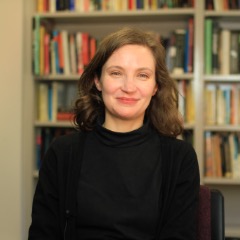You are not currently logged in. Please create an account or log in to view the full course.
What was the aftermath of the Sharpeville massacre?
- About
- Transcript
- Cite
South Africa – Redefining Resistance to Apartheid, 1961-83
In this course, Dr Rachel Johnson (University of Durham) explores the redefined resistance to apartheid from 1961-83. In the first lecture, we think about the aftermath of the Sharpeville massacre. In the second lecture, we think about the ‘cracks’ which formed in the apartheid regime. In the third lecture, we think about the role of Bantustans in the apartheid regime. Next, we think about the external pressures which grew against the apartheid state. In the fifth lecture, we think about the role of men in the anti-apartheid movement. In the sixth and final lecture, we think about the role of women and church leaders in the anti-apartheid movement.
What was the aftermath of the Sharpeville massacre?
In this lecture, we think about the Sharpeville massacre and its aftermath, focusing in particular on: (i) the specific events of 21 March 1960, in which 69 people were killed; (ii) the origins of the Sharpeville protest being against pass laws, organised by the Pan African Congress (PAC); (iii) the resulting oppression in South Africa after the Sharpeville massacre, as the National party intensified their efforts to limit the operations of anti-apartheid groups; (iv) another direct effect of the Sharpeville massacre being the growing international condemnation of the apartheid regime, which included boycotts of South African goods; (v) the United Nations (UN) declaration in 1966 that apartheid was a crime against humanity; (vi) the formation of the United Democratic Front (UDF) in 1983 as an organised effort against apartheid; (vii) work stay aways, protests and the withdrawal of foreign investment after the Sharpeville massacre as key contributors to South Africa’s subsequent economic challenges; (viii) the banning of the African National Congress (ANC) and PAC in April 1960; (ix) the decision by the ANC and PAC, after they were banned, to launch an armed struggle against the apartheid state; (x) Nelson Mandela as the first leader of the ANC’s military wing, uMkhonto we Sizwe (MK); (xi) Nelson Mandela’s view that the oppression of African people by the apartheid state was leading inevitably to violence and to conflict with the government; (xii) conflict in Paarl, organised by Poqo, the armed wing of the PAC, which resulted in the deaths of two White residents; (xiii) the Rivonia Trial, which resulted in the sentencing of anti-apartheid leaders, including Nelson Mandela and Walter Sisulu, to life imprisonment; (xiv) the economic prosperity enjoyed by White society throughout the 1960s, after the initial post-Sharpeville downturn, driven by rising gold prices and access to cheap labour through the exploitation of African people; (xv) Hendrik Verwoerd’s implementation of ubiquitous apartheid legislation throughout the 1960s, misleadingly referring to the program as ‘separate development’; (xvi) the relocation of African people to ‘homelands’ or ‘Bantustans’, which, in some cases, resulted in their subsequent loss of South African citizenship once these regions became recognised as independent.
Cite this Lecture
APA style
Johnson, R. (2024, May 30). South Africa – Redefining Resistance to Apartheid, 1961-83 - What was the aftermath of the Sharpeville massacre? [Video]. MASSOLIT. https://massolit.io/courses/south-africa-redefining-resistance-to-apartheid-1961-83/what-role-did-women-and-church-leaders-play-in-the-anti-apartheid-movement
MLA style
Johnson, R. "South Africa – Redefining Resistance to Apartheid, 1961-83 – What was the aftermath of the Sharpeville massacre?." MASSOLIT, uploaded by MASSOLIT, 30 May 2024, https://massolit.io/courses/south-africa-redefining-resistance-to-apartheid-1961-83/what-role-did-women-and-church-leaders-play-in-the-anti-apartheid-movement

